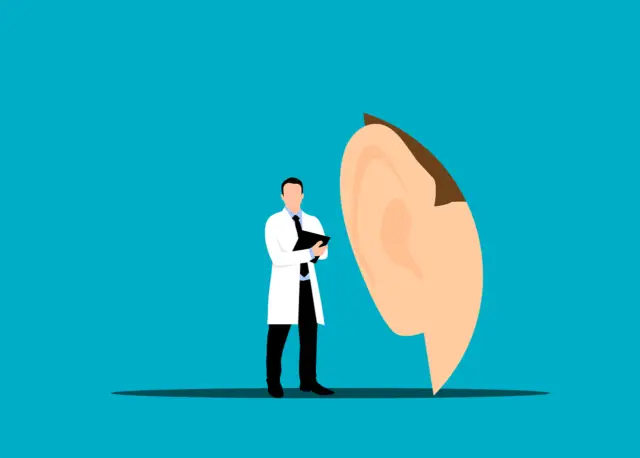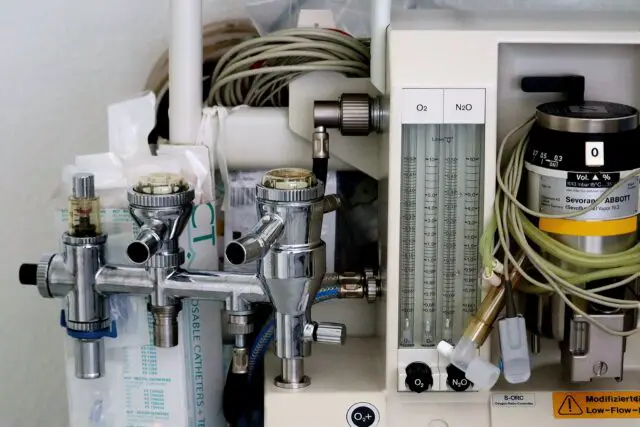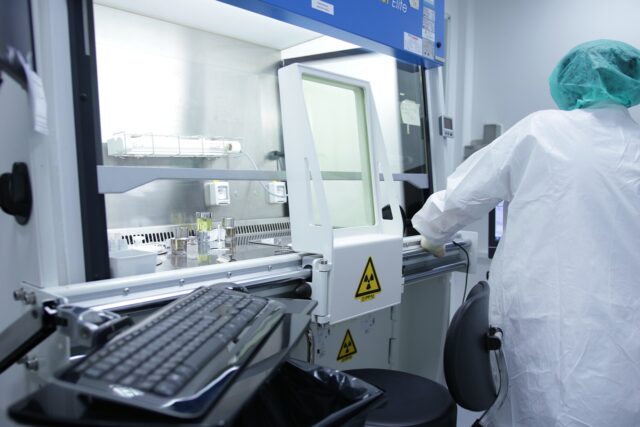What is an Audiologist?
In this audiologist job description, you’ll see this career is about specializing in the diagnosis, management, and treatment of hearing, balance, and other auditory disorders. They are responsible for the evaluation of hearing and balance difficulties, as well as the development of treatments and management strategies for those experiencing hearing loss.
Audiologists may work in a variety of healthcare settings, including hospitals, private clinics, and educational institutions. They typically have a master’s degree in audiology and may have additional certifications or specializations in certain areas.
It’s important to note that audiology is a medical profession, and thus requires an understanding of the medical aspects of hearing loss and its treatment.
What Does an Audiologist do?
An audiologist performs a wide variety of tasks in order to diagnose, treat and manage hearing, balance, and other auditory disorders. This may include conducting assessments to determine the degree of hearing loss, as well as developing strategies for managing the condition.
Audiologists may also fit and dispense hearing aids and assistive listening devices, provide counseling services, and design and implement hearing conservation programs. They may also be involved in research projects and provide continuing education opportunities for healthcare professionals.
Audiologist Job Duties
An audiologist’s job duties can vary depending on the setting in which they work. Generally speaking, an audiologist is responsible for assessing a patient’s hearing and balance, formulating and implementing a treatment plan, and providing education to patients and their families on hearing loss and management strategies.
This may include fitting and dispensing hearing aids and other assistive devices, as well as providing counseling services and developing hearing conservation programs. Audiologists may also be involved in research projects related to hearing loss and its treatment, and provide continuing education opportunities for healthcare professionals.
Education and Training Requirements
Most audiologists hold a master’s degree in audiology, as well as additional certifications or specializations in certain areas. Many audiologists also hold a doctorate in audiology, although this is not required in all states. In addition to a degree, audiologists must also complete a period of clinical training in order to become certified in their field. This may include supervised clinical rotations in hospitals and private clinics, as well as a period of study in a specific specialty area.
Audiologist Job Outlook
The job outlook for audiologists is expected to be positive in the coming years. As the population ages, there is likely to be an increased demand for audiologists to diagnose and treat hearing and balance disorders. Additionally, advances in technology are likely to create new job opportunities for audiologists in the form of research and development, as well as the use of new technologies to diagnose and treat hearing loss.
Qualities Needed to Become an Audiologist
To become an audiologist, a person must possess certain qualities, including excellent communication skills, an understanding of the medical aspects of hearing loss and its treatment, and the ability to work with a variety of patients and healthcare professionals. Additionally, audiologists must be able to work independently and have strong problem-solving and analytical skills.
Audiologist Salary
The salary an audiologist earns can vary depending on the type of job they have and the location in which they work. Most audiologists earn an average annual salary of around $82,000, although this can vary depending on experience and qualifications. Additionally, some employers may offer bonuses or other benefits to audiologists who have achieved certain levels of experience or certifications.
Audiologist Job Opportunities
Audiologist job opportunities are available in a variety of settings, including hospitals, private clinics, and educational institutions. Additionally, audiologists may also work in research and development, as well as in the manufacturing of hearing aids and other assistive devices.
Audiologist Career Paths
An audiologist’s career path is often determined by their education, experience, and special interests. Audiologists typically begin their careers by earning a master’s degree in audiology and completing a period of clinical training in order to become certified. Once certified, audiologists may pursue a variety of career paths.
For example, some audiologists may choose to specialize in a particular area, such as pediatric audiology or vestibular audiology. These audiologists typically work in hospitals or private clinics, providing diagnostic and treatment services for patients with hearing and balance disorders. Additionally, some audiologists may also work in research and development, as well as in the manufacturing of hearing aids and other assistive devices.
Other audiologists may choose to pursue a career in education. These audiologists typically work in educational settings, such as universities and schools, providing instruction and mentorship to students. They may also be involved in research projects related to hearing and balance disorders, as well as the development of new treatments and strategies.
Finally, some audiologists may choose to pursue a career in administration or management. These audiologists typically work in larger healthcare facilities, overseeing the operations of an audiology department and managing staff. They may also be involved in developing policies and procedures, as well as creating budgets and assessing the effectiveness of services.
No matter what career path they choose, audiologists must possess strong communication and problem-solving skills, as well as an understanding of the medical aspects of hearing loss and its treatment. With the right education and training, audiologists can enjoy a fulfilling and rewarding career.
Audiologist Certification Requirements
To become an audiologist, individuals must complete a period of education and training in order to become certified. In most states, audiologists must hold a master’s degree in audiology, as well as additional certifications or specializations in certain areas. Depending on the state, audiologists may also be required to complete a period of clinical training in order to become certified.
In addition to completing the necessary education and training, audiologists must also meet certain licensure requirements. These requirements vary by state but typically include passing an examination administered by the American Speech-Language-Hearing Association (ASHA). Depending on the state, audiologists may also be required to complete continuing education courses in order to maintain their license.
To maintain certification, audiologists must also adhere to the standards set by ASHA. These standards include providing quality care to patients, adhering to ethical practices, and demonstrating a commitment to professional development. Audiologists must also demonstrate an understanding of the medical aspects of hearing loss and its treatment, as well as knowledge of the current trends and research in audiology.
By meeting the necessary certification requirements, audiologists can ensure that they are providing the highest level of care to their patients. In addition, certification may also provide audiologists with access to more job opportunities and higher salaries. For those interested in becoming an audiologist, it is important to understand the certification requirements in your state so that you can begin the process of obtaining the necessary education and training.
Audiologist Specializations
Audiologists have the opportunity to specialize in a variety of areas in order to provide the best care for their patients. Specializing in a particular area of audiology can provide audiologists with a deeper understanding of the condition, as well as the opportunity to work with a variety of patients. Some of the most common areas of specialization for audiologists include pediatric audiology, vestibular audiology, and cochlear implant audiology.
Pediatric audiologists specialize in the diagnosis and treatment of hearing loss in children. They assess the hearing and balance of infants, children, and teenagers in order to identify any difficulties and formulate treatment plans. Additionally, pediatric audiologists may also provide counseling services and support for families with hearing-impaired children.
Vestibular audiologists specialize in the diagnosis and treatment of balance disorders. They assess a patient’s balance system, identify any difficulties and provide treatment plans in order to improve balance and reduce dizziness and vertigo. They may also provide counseling services and assistive devices, such as hearing aids and balance aids.
Finally, cochlear implant audiologists specialize in the fitting and programming of cochlear implants, as well as the counseling of families of cochlear implant recipients. They work with patients to ensure the implant is functioning correctly and provide support and guidance to the patient and their families.
By specializing in a particular area, audiologists can provide the highest level of care to their patients. Additionally, specialization can provide audiologists with the opportunity to work with a variety of patients and develop a deeper understanding of the condition.
Audiologist Job Market Trends
The audiologist job market is an ever-evolving field, with new trends and developments emerging every year. As the population ages, there is likely to be an increased demand for audiologists to diagnose and treat hearing and balance disorders. Additionally, advances in technology are likely to create new job opportunities for audiologists in the form of research and development, as well as the use of new technologies to diagnose and treat hearing loss.
The demand for audiologists is also likely to rise due to the increasing prevalence of hearing loss. According to the World Health Organization, hearing loss affects nearly half of all adults over the age of 65. As the population ages, the need for audiologists to diagnose and treat hearing and balance disorders is likely to increase.
Another emerging trend in the audiologist job market is the growing number of telehealth opportunities. Telehealth services offer audiologists the opportunity to provide remote patient care, allowing them to diagnose and treat hearing and balance disorders from any location. Additionally, telehealth services may also provide audiologists with the opportunity to reach more patients, as well as reduce the cost of providing care.
Finally, the increasing prevalence of hearing aids and other assistive devices is likely to create new job opportunities for audiologists. As technology advances, audiologists may find themselves in high demand as they are needed to fit and program a variety of hearing aids and other assistive devices. Additionally, they may also be involved in research and development, as well as the manufacturing of hearing aids and other assistive devices.
Overall, the job market for audiologists is likely to remain strong in the coming years. With an aging population, advances in technology, and the increasing prevalence of hearing and balance disorders, audiologists are likely to remain in high demand.






